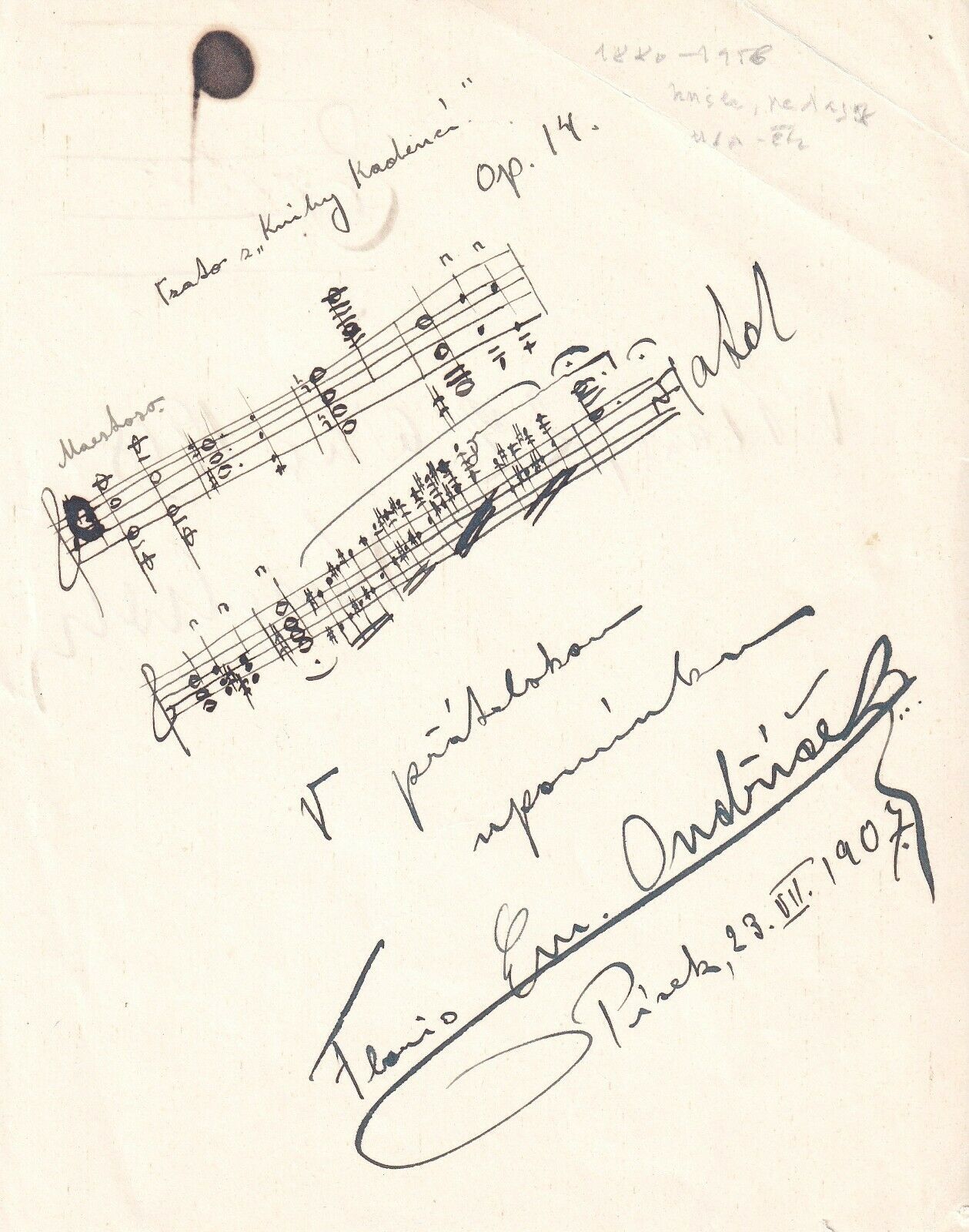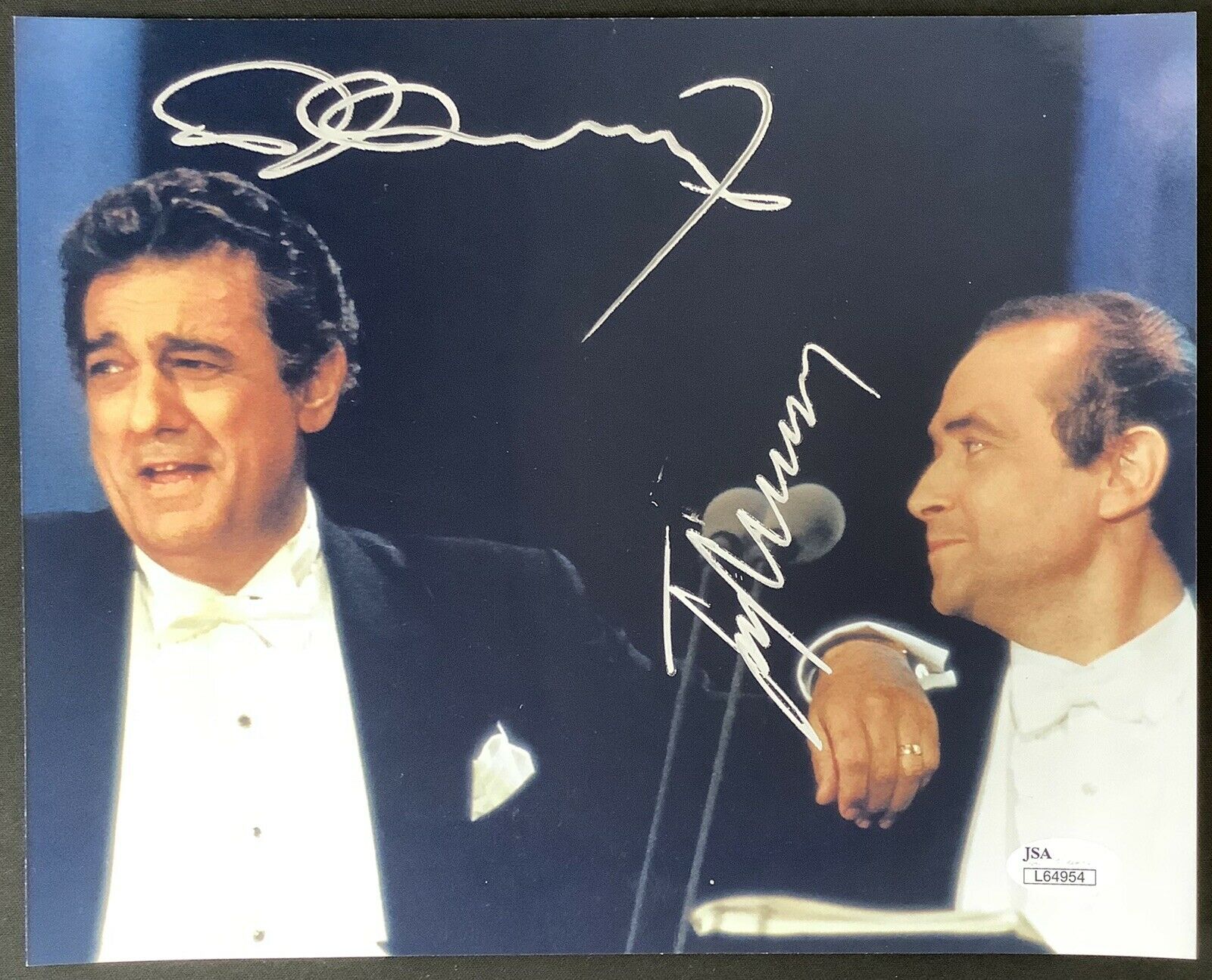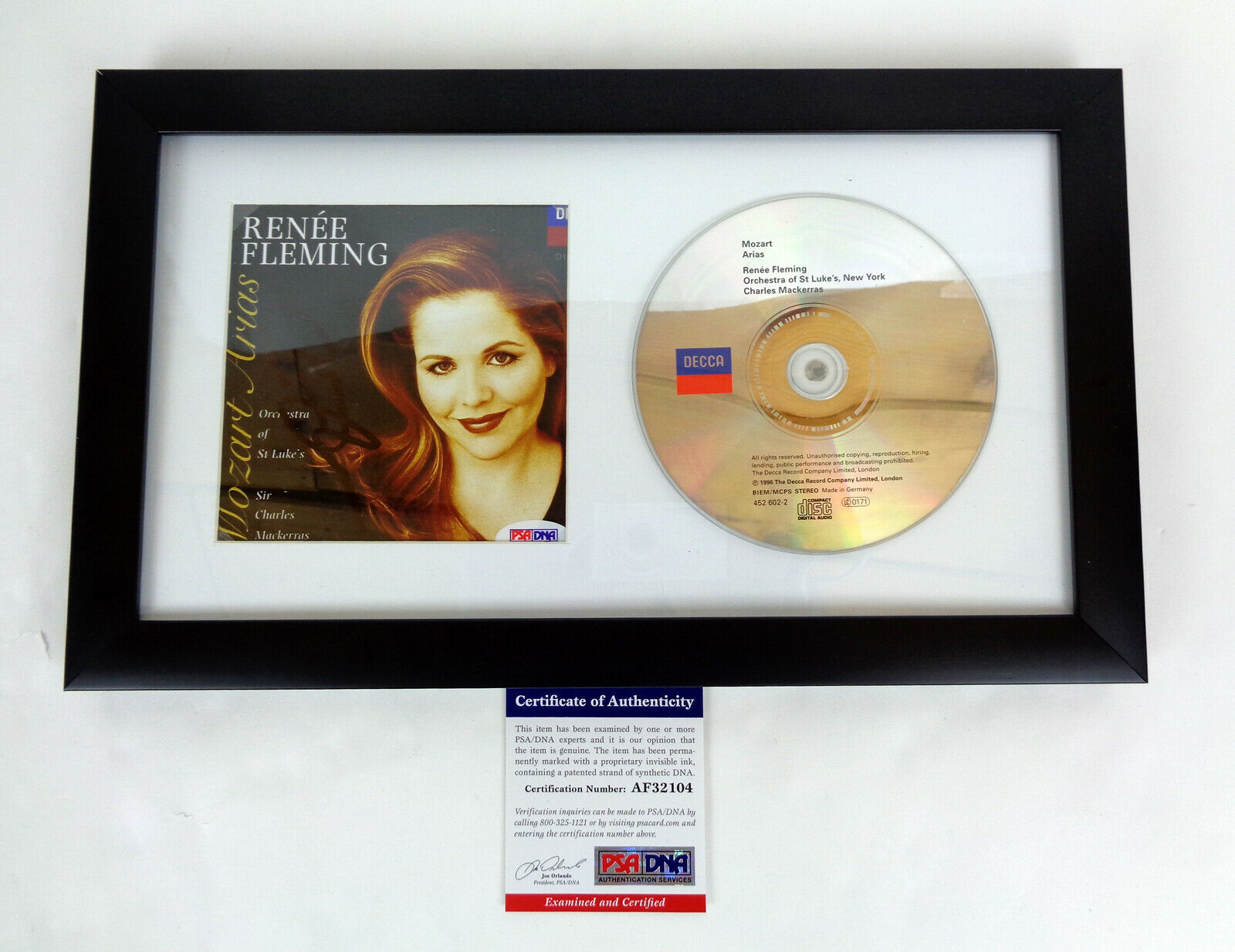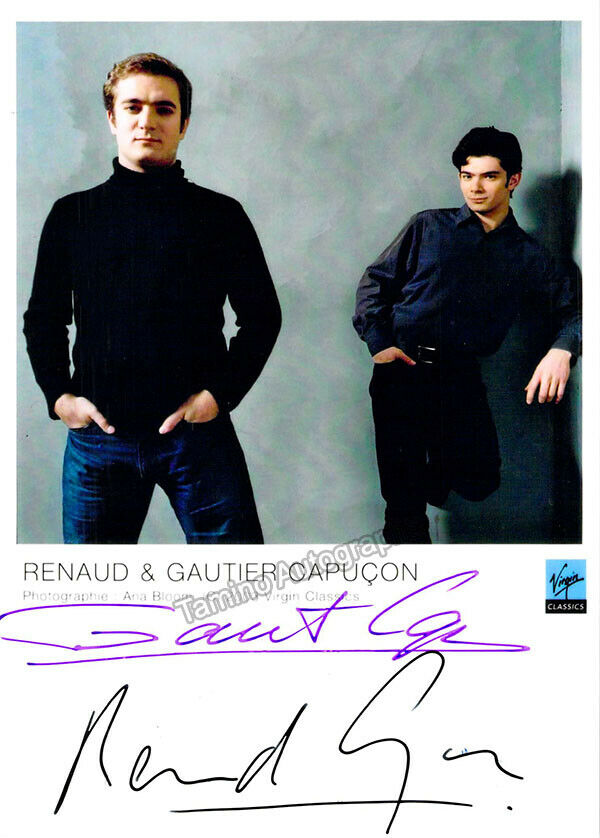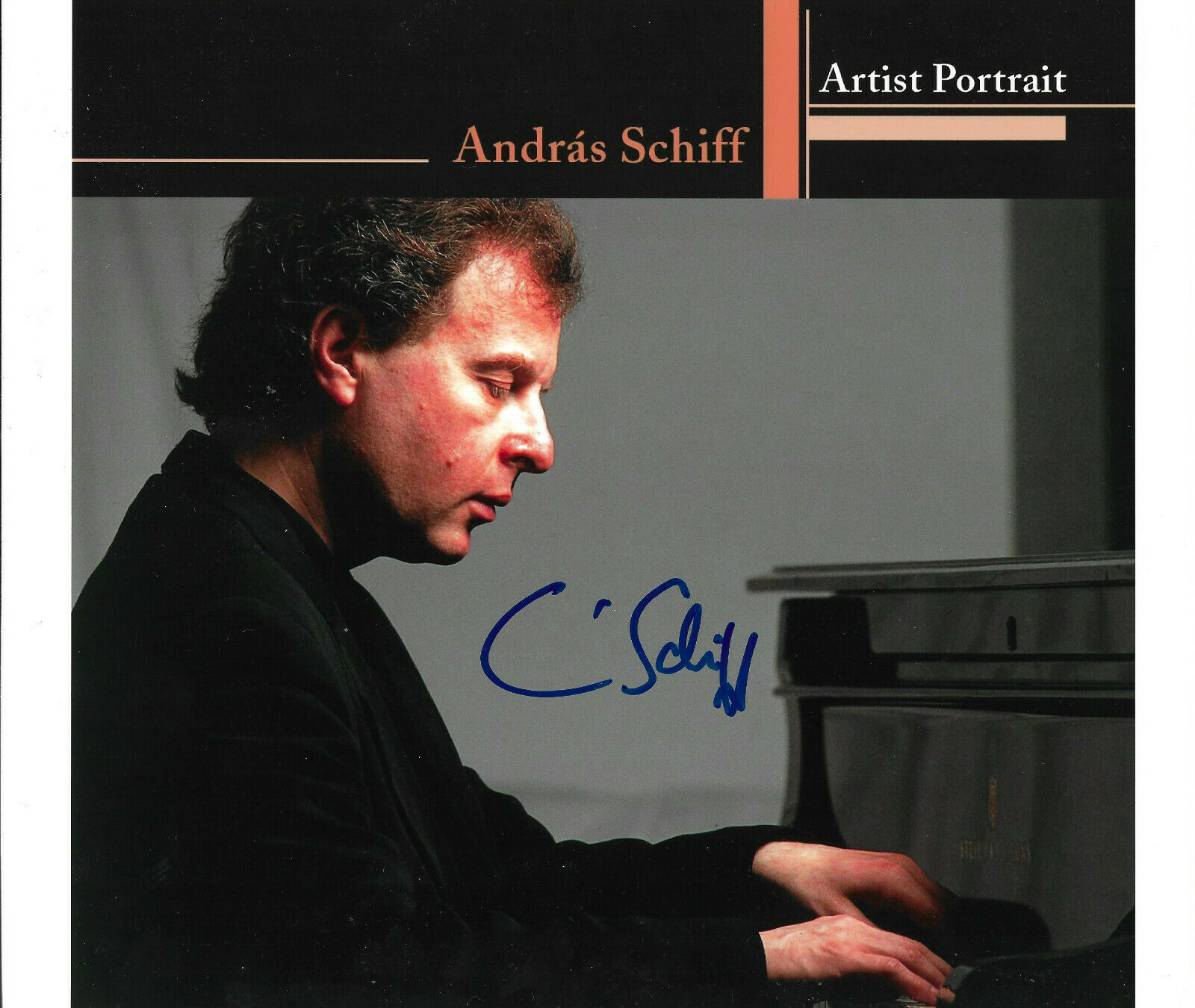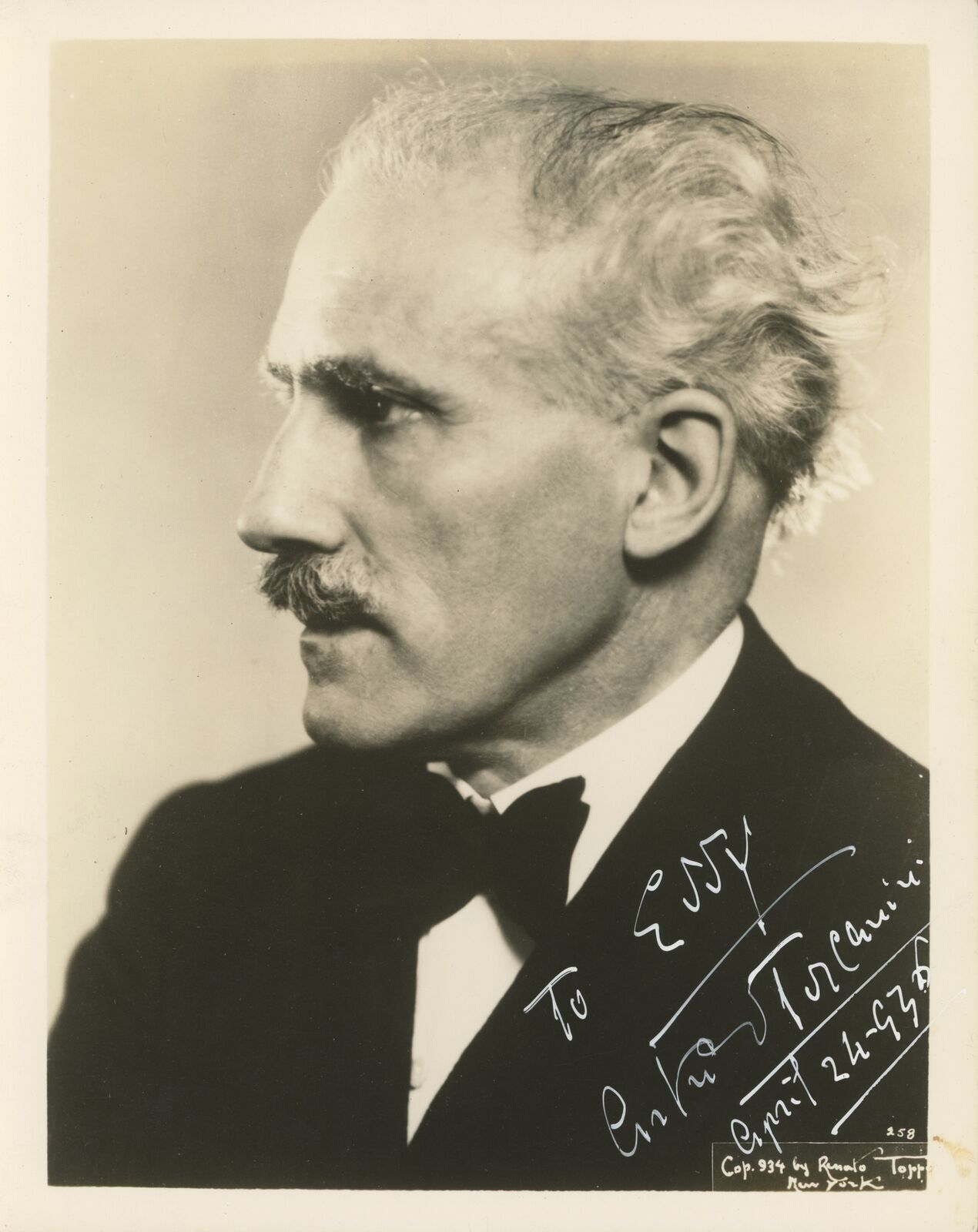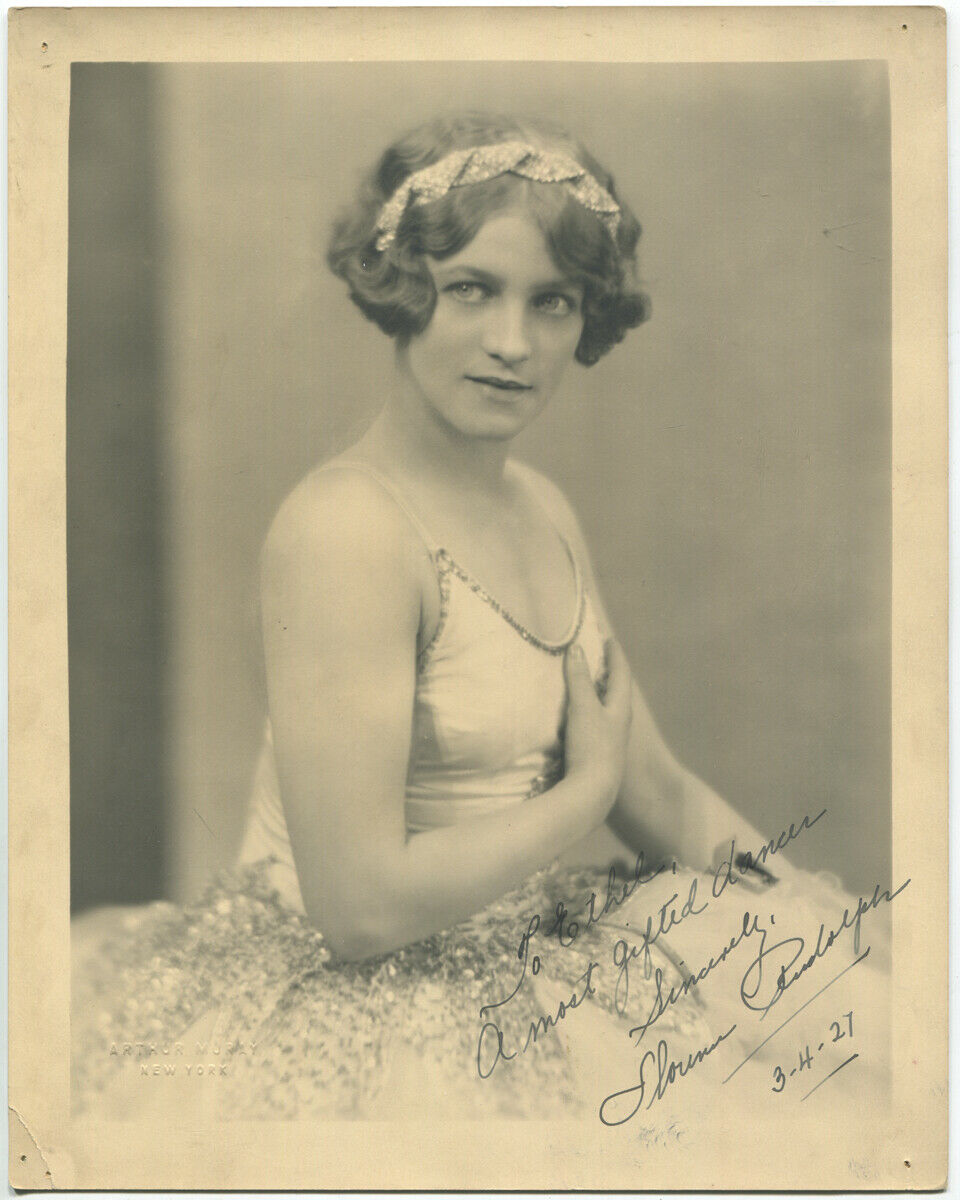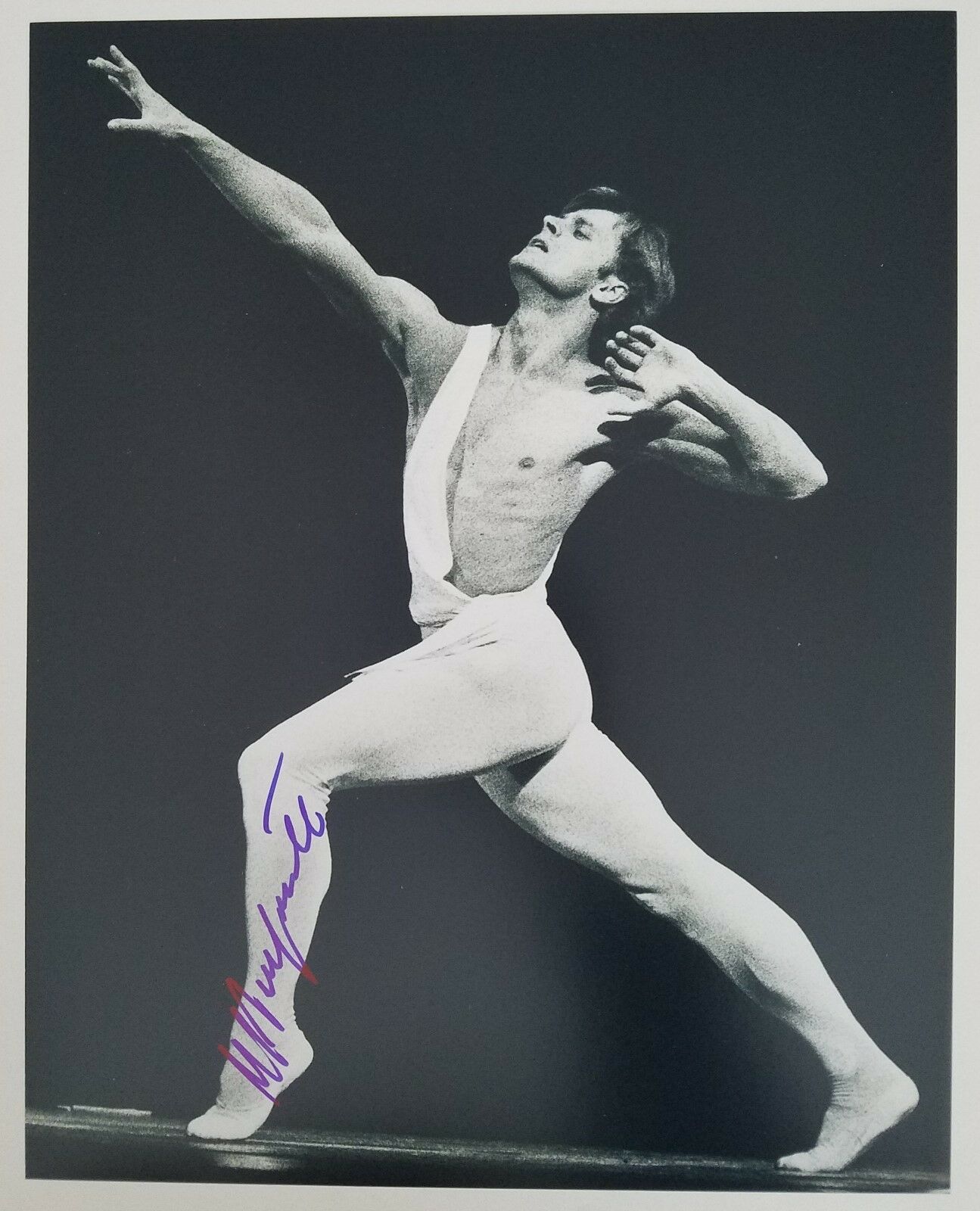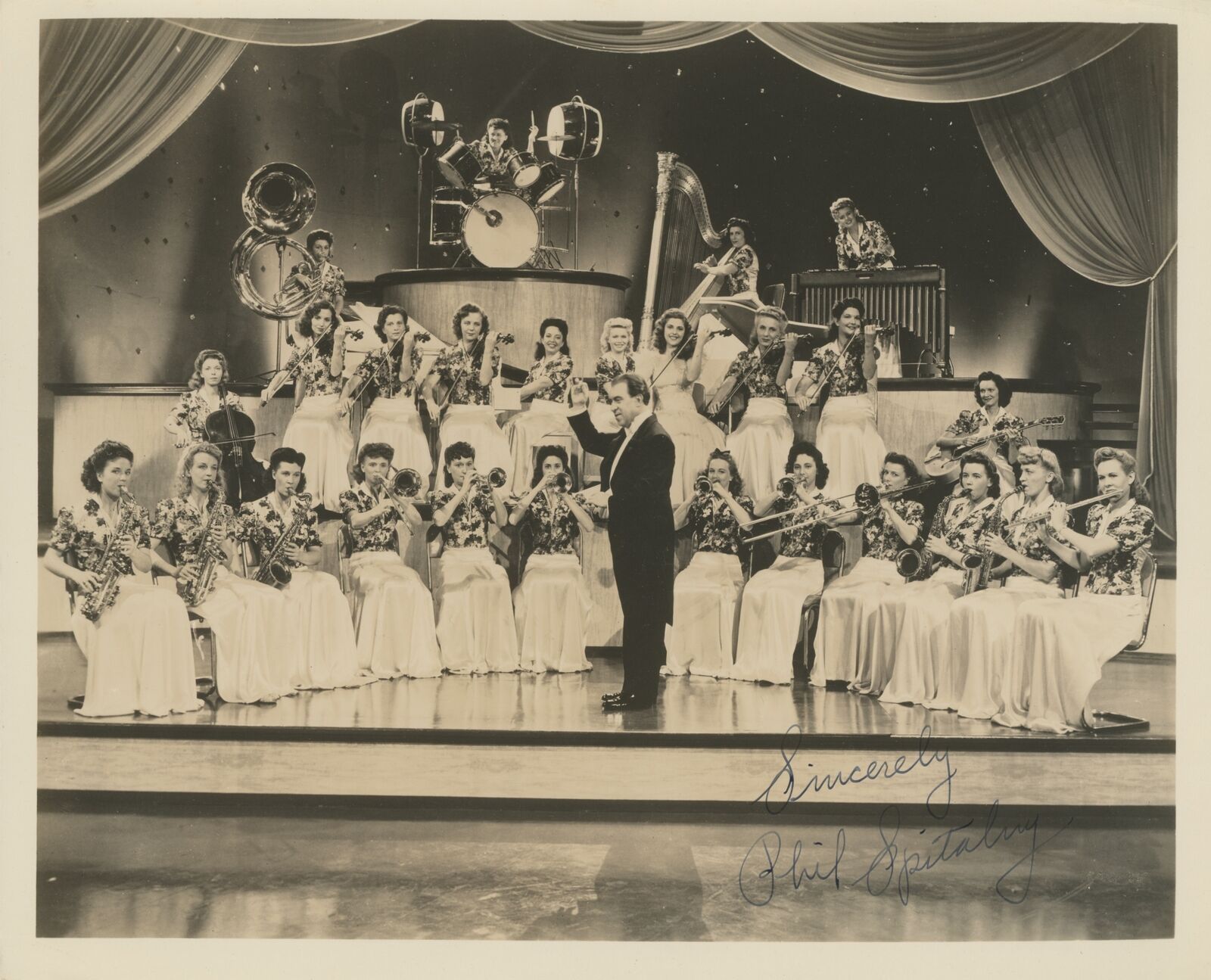-40%
EMIL ONDRICEK Violinist & KAREL WEIS Composer musical quotes + autographed photo
$ 132
- Description
- Size Guide
Description
Seven bar musical quotation of an unknown cadenza from the violinists’, “Treaty Cadenza Book” (Trado Knihy Kadencí) op. 14, Pisek, July 23, 1907 on a 6” x 8” album leaf. He signs with his nom de concert, “Floris Em. Ondricek”. The verso contains the autograph of Czech composer Karel Weis with a single “e” on the musical staff, 1908. The note is so bold there is a little bleed to the other side. We include a youthful autographed postcard photograph of the virtuoso violinist. Signed beneath Ondricek's autograph is that of his brother-in-law pianist Karel Leitner who has written a few lines, and dated the postcard beneath his name, March 24, 1903.Emanuel Ondricek’s (1880-1958) older brother Frantisek (Franz) is better known today due to his friendship with Dvorak and the fact he performed the world premiere of the Dvorak Violin Concerto. There was also two other brothers, Karel (Jan Kubelik's teacher) and Stanislav, as well as two sisters Mary and Augusta; all were musicians.
Emanuel had a remarkable international career, far more expansive than his older brothers. Emanuel, a student of his farther, was sent in 1894 to study with Otakar Sevcik at the Prague Conservatory. He graduated in 1899 and went to Brussels where he finished his studies with Eugene Ysaÿe. He made a number of tours of Eastern and Western Europe including the major musical capitals. In London, with perhaps concerns about anti-Semitism he performed under the name of "Floris". He opened his first school there. At the time he was an able competitor of Jan Kubelik. Ondricek arrived in the United States in 1910 and performed as a virtuoso. In 1912 suffered a nervous breakdown and his neurological condition ended his performing career. That said he opened two music academies, Ondricek's Studio of Violin Art in Boston and New York City and taught his own version of the Sevcik method. His two sisters, one a violinist, the other a pianist helped with the schools, as well as their two husbands, pianist Karel Leitner and cellist Bedrich Vaska. Brother Karel Ondricek’s wife Ella Kalova Ondricek was a violinist and helped teach at the school. (Karel was a member of the Boston Symphony Orchestra and the Kneisel Quartet.) Ondricek had a large number of pupils, the most important was Ruth Posselt. Ondricek took Posselt around the world on tour conducting her performances, as he could no longer play the violin. He also married Ruth's sister Gladys. Some of his other students included Ruth's husband and Auer pupil Richard Burgin who was the Boston Symphony Orchestra Concertmaster, Charles Castelman and Harriet Emerson. Ondricek was also a friend of Bohuslav Martinu who stayed with the violinist and his wife in their Cape Cod summer home in the Summer so he could compose in peace. In 1956 Ondricek was appointed Director of the Fine and Performing Arts School at Boston University. He passed away 2 years later. Ondricek wrote a number of works for violin as well as a string quartet. He also edited a number of works and published a volume entitled, The Mastery of Tone Production and Expression on the Violin.
Weiss (1862-1944) studied French horn, violin and piano at the Prague Conservatory. He was thrown out of the Prague Conservatory, despite that, Dvorak who was the rector at the time saw promise and so much as stated that Weis was the future of Bohemian music. From 1878-1881 he enrolled and studied at the Prague Organ School, with composer’s Zdenek Fibich and Frantisek Skuhersky. (Skuhersky taught Janacek composition as well.) Upon graduation, he was made organist at St. Stephens Cathedral and also was chief organist of the Great Synagogue at Prague. Weis also played violin in the National Theater Orchestra. From 1886-1887 he was a conductor at the National Theatre in Brno. Another gig was as accompanist to his friend, virtuoso violinist Franz Ondricek.
Weiss wrote in several genres, his 11 operas and operettas included; “Viola” later “The Twins” (1892), “Der Polnische Jude” (1901), “Die Dorfmusikanten” (1905), “Der Revisor” (1907), “Utoknamlýn” (1912), “Blizenci” (1917), “Lesetinskýkovár” (1920) and “Bojárskanevesta” (1943). The opera “The Polish Jew” was an international sensation, performed throughout Europe and in March, 1921, received 3 performances at the Metropolitan Opera with Artur Bodansky conducting. As at the time it seemed unseemly to hire a Jewish actor from Yiddish Theater, the ended up hiring a Vaudeville baritone known by his stage name, Chief Caupolican as the lead. (His given name was Emile Barragnon and he was in fact from an Indian tribe in Chile,but not a chief.) Other works include his Symphonic poem, a string quartet, a violin sonata, a large number of works for piano, as well as a large group of 15 volumes of songs with Czech folk songs used as their basis. He is still revered in the Czech Republic as a hero for his compilations of folks songs, his home is a museum, the Adolfov District near the Czech-German border is known as the Karel Weis District in memory of his work.
Harmonie Autographs and Music, Inc.
Music Antiquarian and Appraiser
New York, New York
All items guaranteed authentic
